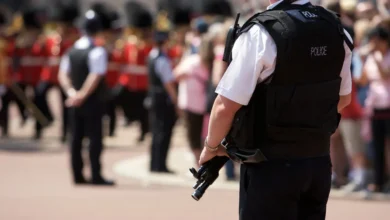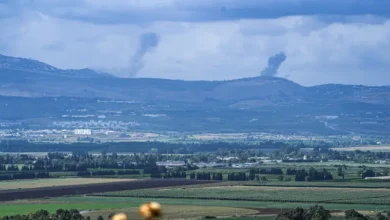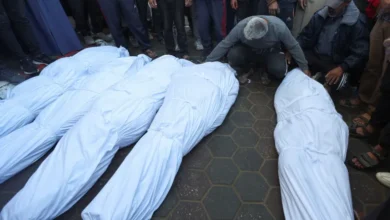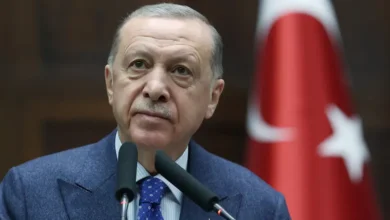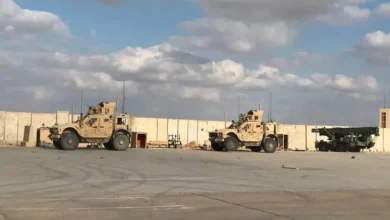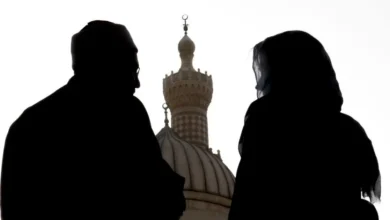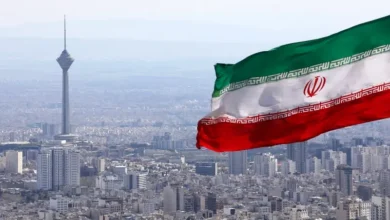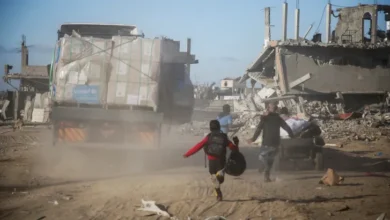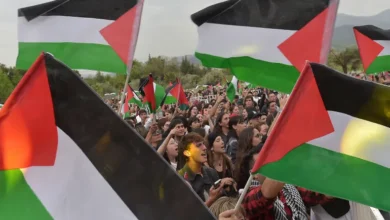Muslims in fear in India’s Gurugram after attacks on mosque, businesses
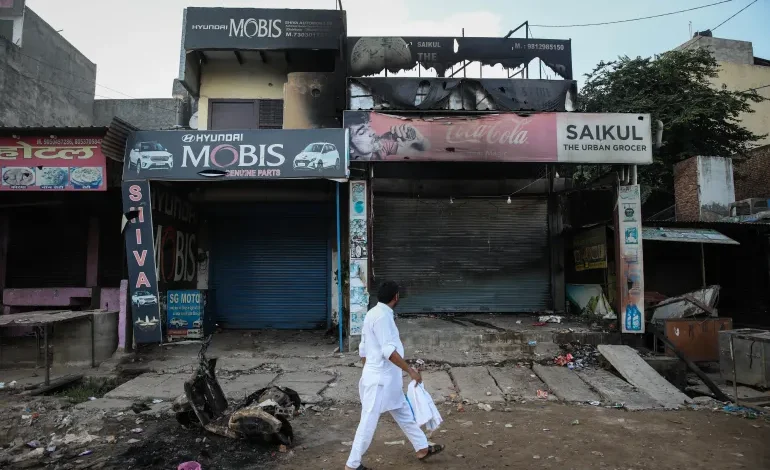
The Anjuman Jama mosque in Gurugram’s Sector 57 is deserted. About 10 police officers stand in front of the concrete structure, which used to host up to 450 worshippers but is now a mound of debris and ashes.
The mosque – one of the few places for Muslim worship in Gurugram, a predominantly Hindu city next to India’s capital, New Delhi – came under attack on the night of July 31, allegedly by a Hindu far-right mob.The assailants set the mosque ablaze and killed Mohammad Saad, a 22-year-old naib (deputy) imam who was inside at the time. The attack took place hours after deadly communal violence erupted in the neighbouring Nuh district in Haryana state.Mohammad Faheem Kazmi, an interior designer who regularly prays at the torched mosque, said he was horrified.
“This attack was revenge for Nuh,” the 32-year-old, who has lived in the area since 2011, told Al Jazeera.
At least four people were killed, including two policemen, when a Hindu religious procession in Nuh that was organised by the Vishwa Hindu Parishad (VHP) and Bajrang Dal, two Hindu far-right organisations aligned with the ruling Bharatiya Janata Party (BJP), turned violent.According to media reports and Nuh residents, clashes ensued after some Muslim men stopped the religious procession and stones were thrown at the march.
Authorities in Haryana have deployed additional troops, imposed a curfew and suspended the internet in the wake of the unrest. But the measures did not stop Hindu mobs from attacking Muslim-owned shops, roadside eateries, properties and places of worship in Gurugram as well as in nearby towns such as Sohna, residents said.
Shops in Gurugram’s Sector 70A and Sector 66 were torched on Tuesday evening, while Bajrang Dal members held a rally in Haryana’s Bahadurgarh city, shouting hateful slogans such as “Desh ke gaddaron ko, Goli maaro saalon ko” (“Shoot the traitors of our country”) – a chant that was widely used by BJP politicians against Muslims during the anti-Citizenship Amendment Act protests in 2019 and 2020.Speaking about the violence on Tuesday, Gurugram Police Commissioner Kala Ramachandran told Al Jazeera that “some kiosks were damaged in arson”.
“Prima facie [On the first impression] the men we rounded up were not linked to any particular group. However, an investigation is still under way,” she said.
The offices of companies such as Google and Deloitte are located just a few kilometres from the sites of violence in Gurugram, which has been given the moniker “millennium city” for attracting multinational corporations and hosting upmarket shopping centres.
The unrest in Haryana comes a month before global leaders are due to arrive in New Delhi for a Group of 20 (G20) summit. Prime Minister Narendra Modi has not commented on the violence that came a day after a railway security officer killed one of his colleagues and three Muslim passengers, in what is seen by many as a hate crime.
In recent weeks, Modi has also been criticised for staying silent on the weeks-long ethnic violence that has erupted in the northeastern state of Manipur, killing more than 130 people and forcing thousands to live in relief camps.
Haryana state Chief Minister Manohar Lal Khattar on Wednesday said a total of 116 people had been arrested in connection to the violence there.
“The conspirators [behind the clashes in Nuh] are being continuously identified,” he told reporters.
Khattar, who is from Modi’s BJP, did not comment on the imam’s killing. “Those found guilty will not be spared. We are committed to the safety of the public,” he said.
‘Happened in presence of police’
But Shadab Anwar, the elder brother of the slain imam, Mohammad Saad, said he had little faith in the authorities, who have been accused of playing a partisan role in recent violence targeting the Muslims.
